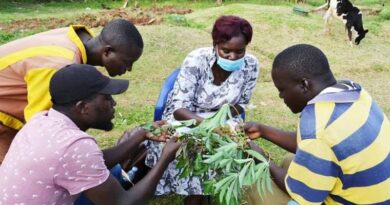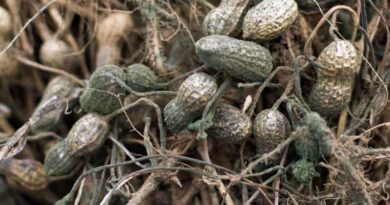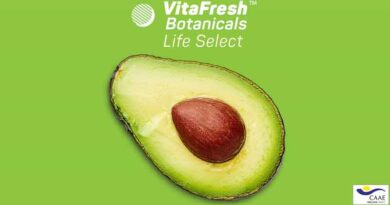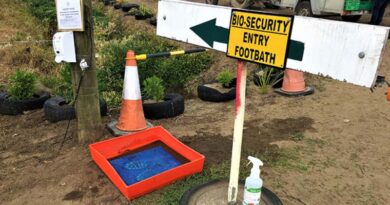Aflatoxins, rabies and misuse of pesticides and animal health drugs are top ‘One Health’ issues at joint crop-livestock focused clinics in Uganda
21 March 2023, Uganda: Aflatoxins, rabies and misuse of pesticides and drugs are among the top issues prioritised to be addressed at joint crop-livestock clinics set up to help improve the health and livelihoods of smallholder farming families in Uganda.
So far, over 1,600 smallholder farmers have been reached at six joint-crop livestock clinics in the districts of Mukono, Luwero, Buikwe, Kayunga, Kagadi and Hoima, where a ‘One Health’ approach to agricultural productivity is being adopted.
Crop and livestock problems
The clinics have received nearly 1,900 enquiries on both crop and livestock problems – of which 8.4% are related to ‘One Health’ issues, with the top problems being aflatoxins, rabies and misuse of pesticides and drugs observed from the participating communities.
While the main crops presented with issues at the clinics include bananas, coffee, cocoa, tomato, other cereals and fruits and vegetables, animals taken for advice on vectors, feeding and shelter include cattle, chickens, pigs and goats.
Rabbits, turkeys and pet cats and dogs have also been taken for advice on their welfare and vaccinations.
The ‘Joint crop and livestock services for smallholder farmers’ project – funded by Biovision Foundation and WTS Welttierschutzstiftung – was launched in Uganda and Kenya to develop integrated crop-livestock health advisory services.
Work in partnership
Work is being carried out in partnership with the Ugandan Ministry of Agriculture, Animal Industry and Fisheries (MAAIF), Makerere University, and local governments of the districts where the joint crop-livestock clinics are run.
The aim is to enable male and female smallholder farmers to address major health and production problems affecting crops, livestock and food safety.
CABI’s work in plant health and plant clinics over the last 18 years – under the Global Plant Clinic and Plantwise programmes – revealed potential ‘One Health’ (OH) benefits of broadening the scope of plant clinics to better meet farmers’ need for advice.
In Kenya, joint clinics have been created in Trans Nzoia and Elgeyo districts and are being run by officials from crop, livestock, veterinary and public health departments.
Between October and December 2022, the clinics in Kenya reached 57 smallholders and 75 queries were received.
Christine Alokit, Communication and Extension Scientist, said, “In low-income countries, smallholders are often left without sufficient support to deal with crop and animal problems due to existing agricultural extension services being understaffed and underfunded.
“The concept of joint crop-livestock clinics under the auspice of a Joint crop-livestock clinics approach to extension services seeks to provide advice on agricultural productivity issues faced by farmers literally under one roof.
“We are making good progress on reaching out to smallholder farmers and using lessons learnt from our pilot clinics in Uganda will determine how to not only improve these but scale out the facilities further within that country and in Kenya.”
Scaling up clinics
The project ultimately aims to establish and operationalize 80 joint crop-livestock clinics and consultation sessions – training crop and animal health officers in identified ‘One Health’ topics and carry out mass extension campaigns on the relevant topics for farmers.
The initiative aims to directly benefit 11,550 smallholder farmers (40% women) and 100 crop and livestock service providers, and indirectly benefit 34,650 other farmers and the wider community (40% women), and 300 crop and livestock service providers.
Tablets have been provided to clinic staff to capture data and 49 staff (agriculture, veterinary, supervisors, regulators/MAAIF, university) are now equipped with skills on data handling and management.
Collection of data
The Uganda data collected has also been submitted to the National Food and Agricultural Statistics System (NFASS).
This data is made available to facilitate planning and decision making at all levels for, among others; Government planning authorities; research and training institutions (academia), the private sector (farmers, investors, and traders), Non-Government Organizations (NGOs), and Development partners.
In December 2022, the CABI Digital Library published a One Health Cases which explored how a ‘One Health’ approach to crop and livestock care in Uganda has been benefiting hundreds of smallholder farmers.
The case study, entitled ‘How Crop-livestock Clinics Are Advancing One Health: A Pilot Case from Uganda,’ highlights the results and lessons learnt from the first pilot year (2021) of the project which is due to run until the end of 2024.
Also Read: Diageo India launches regenerative agriculture program in Punjab and Haryana farmers
(For Latest Agriculture News & Updates, follow Krishak Jagat on Google News)















